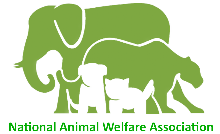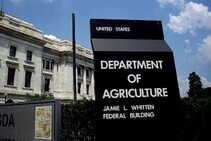- Pelosi democrats attempt to attach animal laws and restrictions to new COVID stimulus bill.
Published by -NAWA News Feed- in -Legislation- · Saturday 16 May 2020
ALERT: Wildlife-Borne Disease Prevention Act (Federal)
Buried on pages 1,628-1,635 of the latest 1,815-page House democratic draft of a COVID-19 relief bill known as the Health and Economic Recovery Omnibus Emergency Solutions Act (HEROES Act) is the text of the Wildlife-Borne Disease Prevention Act (the Act). In the wake of the COVID-19 pandemic and utilizing this crisis as a springboard, the Act has surfaced as activists try to conflate the issue of legal and legitimate trade with substandard wet markets and other unregulated potential vectors for zoonotic disease transmission.
Most troubling of all, the Act contains language that would reverse the USARK federal lawsuit victory by reinstating the ban on interstate transportation of species listed as injurious under the Lacey Act.
In that landmark decision, four federal judges agreed that USARK was correct and that the Lacey Act did not ban interstate transportation of injurious species based on the original language of the Lacey Act and the intent of Congress. As a result of this fight for our members and the herpetocultural community, this meant animals domestically bred under human care could be moved and sold across state lines (within the continental United States). For herpetoculturists’ concerns, this included a few species of constrictors snakes and a long list of salamanders. However, that ruling was made on the current Lacey Act language.
Unfortunately, the proposed law now included in the COVID relief bill would overturn that decision. Specifically, the Act would add this language to the Lacey Act (Title 18 Section 42): “or any interstate transport between States within the continental United States.”
Not only will it ban interstate transportation, but it will expand what is considered an injurious species. In addition to the above amendment, it alters the definition of an injurious species: “to be injurious to or to transmit a pathogen that can cause disease in humans…”
The Act has some other consequences:
1. Creates a new route to petition for listing injurious species (with 90 days for the government to respond);
2. Requires a list of species “that could pose a biohazard risk to human health” be compiled by the government and determine if those species may be injurious. The list is to be finalized within one year after passage of the Act;
3. Creates a new electronic permitting system;
4. Creates new monitoring, research, management, and database frameworks (Wildlife Disease Surveillance through the United States Geological Survey’s National Wildlife Health Center).
While we do not believe that the HEROES Act as passed by the House will be supported by the Senate, we do have reasonable concerns that the language on the wildlife trade will find its way into a subsequent bill that could pass the Congress.
For this reason, we are alerting our membership and other animal interests to this threat while working to prevent the inclusion of the Act into a Senate bill. We are engaged, as always, and will keep the community apprised. If action is needed from membership, we will issue an alert and steps to take.
We hope everyone is safe and healthy during this time. Be responsible! Protect your health and the health of others. Always represent herpetoculture in a professional manner.
You can find the full HEROES Act at this link. See page 1,628 for the Wildlife-Borne Disease Prevention Act: https://docs.house.gov/billsthisweek/20200511/BILLS-116hr6800ih.pdf.
Other Related State Updates:
ALERT: California SB1175
California Senate Bill 1175 (SB1175) was introduced in 2019 as the Iconic African Species Protection Act with a stated purpose of banning sales and certain possession of listed live animals or any parts (i.e. taxidermied animals, ivory, etc.). Yesterday, SB1175 was amended (as expected following media statements a few weeks ago).
The amendments to SB1175 include:
Requiring the Department of Fish and Wildlife (DFW) to ban the importation of certain species that may transmit diseases to humans;
Prohibiting the operation of a live animal market (definition does not include reptile shows).
Per the bill, DFW would be required “to immediately suspend any authorization to import a wild animal species into the state when the evidence suggests zoonotic transmission from this species, or a closely related species, could be responsible for a novel, readily transmissible human disease in order to protect the public health.”
“Live animal market” means a retail food market where, in the regular course of business, animals are stored alive and sold to consumers for the purpose of human consumption. “Animal” means frogs, turtles, and birds sold for the purpose of human consumption, with the exception of poultry.
We will have more details posted soon. Briefly, this bill should not affect herpetoculture but the risk of overreach lies within.
Read the bill at http://leginfo.legislature.ca.gov/faces/billNavClient.xhtml?bill_id=201920200SB1175.
ALERT: Louisiana
Louisiana Representative Neil Riser has introduced House Concurrent Resolution 61 (HCR61). HCR61 urges the Department of Wildlife and Fisheries (DWF) to review the regulation governing the possession and ownership of certain non-native species and potentially prohibit additional species. This may cover all types of animals, not just reptiles. Specifically, HCR61 calls for a review of monitor lizards, other lizard species, and "any other potentially invasive species."
HCR61 means that we may be seeing proposed regulations and/or bans by DWF. This would be a regulatory action meaning it would go through the DWF rulemaking process and not through the legislature (legislative process).
Get more details at: https://facebook.com/UnitedStatesAssociationOfReptileKeepers/photos/a.398227663592526/2913132235435377.
ALERT: Oak Grove, Kentucky
UPDATE from 5/6/20: Keep contacting officials! They are listening. "Prior to the second reading, the council along with the mayor and City Attorney Mark Gilbert will do additional research regarding laws surrounding exotic pets and vicious dogs and animals to be added to the ordinance."
The council will hear a second reading on May 19.
________________________________________
Oak Grove has proposed a blanket ban on all "exotic animals." Council Member Leavell stated the ban will include, "Anything that could be considered exotic." This would be a ban on herps, birds, mammals, and maybe even some fish. Essentially, this would be an open door for fines or seizures of any animal that is not a dog, cat, or within the City's definition of "livestock."
Get full details, sample messaging, and more at
Pennsylvania Alert
House Bill 2450 (HB2450) was introduced on April 27 and amends (changes) Title 34 (Game) of the Pennsylvania Consolidated Statutes. The main scope of the bill is to redefine "exotic wildlife." This bill actually removes several species from the current exotic wildlife designation meaning some species which are currently wrongfully banned will be legal to keep. This bill applies to mammals and birds only. See the link below for information.
Get full details at
Arkansas Update
The Arkansas Game and Fish Commission (AGFC) had its first reading of the proposed captive wildlife regulations. A new public comment period is now open. The Commission is expected to vote on these regulations at its May 21 meeting. Additional comments to each proposal can be made at https://apps.agfc.com/regulations/out-for-comment/.
Get more details at
More on Arkansas
As a very quick review, this overhaul of the Arkansas captive wildlife regulations began back in mid-2018. There are many issues with the current regulations and this proposal does resolve some problems but there are still troubles with the proposal. We appreciate the members of AGFC staff who have taken the time to listen and those who understand the factual information provided by dedicated stakeholders and USARK. Hopefully, we can see more collaboration rather than bans.
Essentially, AGFC is creating a three-tier system (three lists of species):
1. unrestricted list: exempt from Codes 09.02 (Possession Of Non-Native Wildlife In Captivity Restricted), 09.07 (Wildlife Breeder/Dealer Permit Required), and 09.10 (Wildlife Importation Permit Required)
2. permitted list: Permits for breeding, sale, and importation may be issued for the following species in accordance with Codes 09.07 (Wildlife Breeder/Dealer Permit Required) and 09.10 (Wildlife Importation Permit Required). This list also includes venomous and there is a new Venomous Reptile Possession Permit (F1.08 on pages 149-151 of the linked document).
3. prohibited list: The Commission will not issue permits for breeding, sale, or importation of the following species other than in accordance with the exceptions listed in Codes 09.07, 09.10, 09.11 and Addendum F1.03 (possession of some species may be allowed in accordance with Codes 09.02, 09.05, 09.13, and 09.14)
A very BIG Thank You to our friends at USARK that are keeping a close eye on these.
BREAKING UPDATE !




